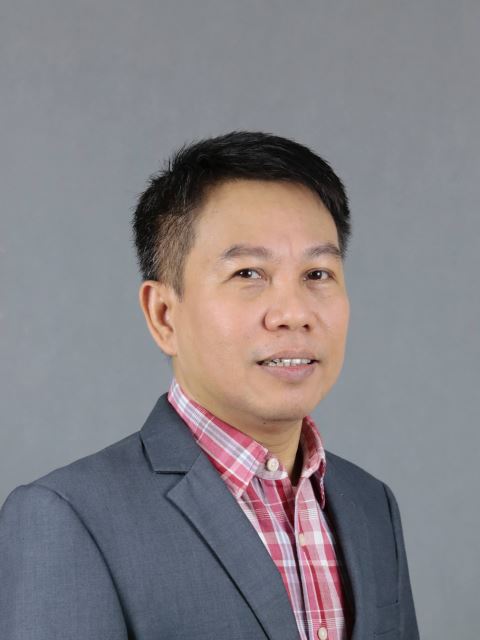NGO VIET TRUNG
SEAMS President
President, Vietnam Mathematical Society
Institute of Mathematics, Vietnam Academy of Science and Technology Vietnam
Title: The development of mathematics in Vietnam
Abstract: This presentation gives a short history of the development of mathematics in Vietnam.
especially about the time since the introduction of mathematics in the school.
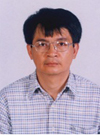
-----------------------------
CHAN ROATH
President, Cambodian Mathematical Society
New Generation Pedagogical Research Center
Ministry of Education, Youth and Sports
Phnom Penh, Cambodia
Topic/title:
Mathematics Education in Cambodia: Before and After Education Reform (2013).
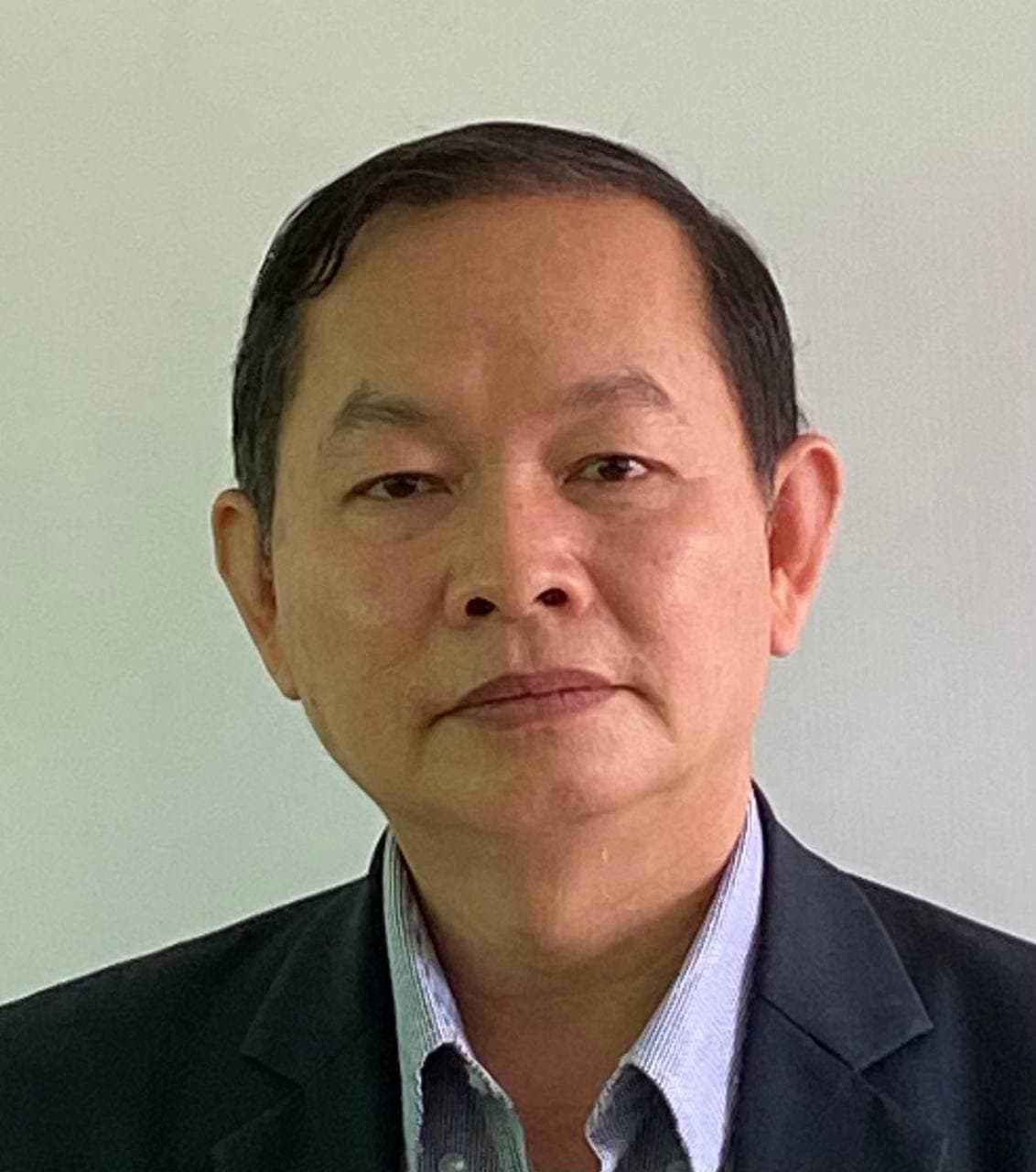
Chan Roath, chan.roath@moeys.gov.kh
The evolution of mathematics education in Cambodia naturally strongly related to the country’s economic, social, and political development. It is generally known that in the 1970’s Cambodia went through a difficult period (3 years, 8 months, and 20 days of the killing field regime) in which very few Cambodian intellectuals survived, including teachers. After 1979, the Ministry of Education, Youth and Sport was forced to minimally trained human resources under the slogan “Those who know more must teach those who know less, those who know less teach those who do not know” (MoEYS, 2019). Efforts to restore the national economyas well as the education sector also included sending students to pursue vocational, intermediate, technical and higher education abroad, through scholarships from many friendly and collaborative countries around the world. Since 1994, most of the students who graduated abroad returned to Cambodia to contribute to the national economic development. Butsystemic issues are still very vivid, as we face a lack of schools, teachers, study materials (including textbooks) and so on. Most teachers in place lack training about teaching methods, their wages level is often insufficient to make a living, and school management appears to be limited. All this directly affected Mathematics education.
The end of 2013 marks a new turn, when the Cambodian government began to reform the education including significant increase budget for education. To improve the education in general, and mathematics education especially, focus was set on curriculum reform, textbooks development, teaching methods training, and the incorporation 21st century skills as part of the school system’s objectives. Increasing the qualification of teachers emphasize constructivism teaching methods in which students are active learners, problem solving, project-based learning, and the use of technology in teaching mathematics. Since 2015, the Ministry of Education, Youth and Sport now adds focused on STEM Education from primary education to post-secondary education level. Lifelong learning and professional development of teachers thus appear increasingly important. For most mathematics teachers, a STEM orientation implies going far beyond their field of expertise, thus presenting a considerable challenge. Our current effort to support them in the new development within a larger framework geared for the evolution of the education sector towards “sustainable development” around eight priorities:
- Priority 1: Safe school reopening, re-enrollment and resumption study
- Priority 2: School reform
- Priority 3: Development of high-quality teachers
- Priority 4: Digital Education
- Priority 5: Promoting STEM Education
- Priority 6: Youth Development to Improve 21st Century Skills
- Priority 7: Establishment of the Center of Excellence in Higher Education
- Priority 8: System Building and Capacity Development
These are strongly related with the global Cambodia Industrial Development Policy’s goal to transform the country’s economy to an industrial and post-industrial era by 2050 (RGC, 2015), in which we read for example:
“In term of concrete implementation, the Royal Government will provide guidance on major structural changes in order to support industrial development, especially in the areas related to skills training and technical education, financial sector development, technology and innovation and raw materials supply and so on and so forth.” (p.18). In this presentation, I will offer a brief history of education in Cambodia and review main
characteristics of mathematics education in Cambodia between 1979 and 2013. I will then focus on the 2013 reform and what followed, including current plan for the future of mathematics education in Cambodia.
Keys word: Mathematics Education, STEM Education, Digital Education, School Reform, Cambodia Industrial Development Policy.
References
MoEYS (2019). Research report on disadvantaged areas in education. Online at:
http://dopomoeys.com/wp-content/uploads/2020/04/Disadvataged-Area-Eng-D02-2.pdf
RCG (2015). Cambodia Industrial Development Policy 2015 – 2025.
Online at:https://www.eurocham-cambodia.org/uploads/97dae-idp_19may15_com_official.pdf
-----------------------------
INDAH EMILIA WIJAYANTI
President of Indonesian Mathematical Society
Department of Mathematics, Gadjah Mada University
Yogyakarta, Indonesia
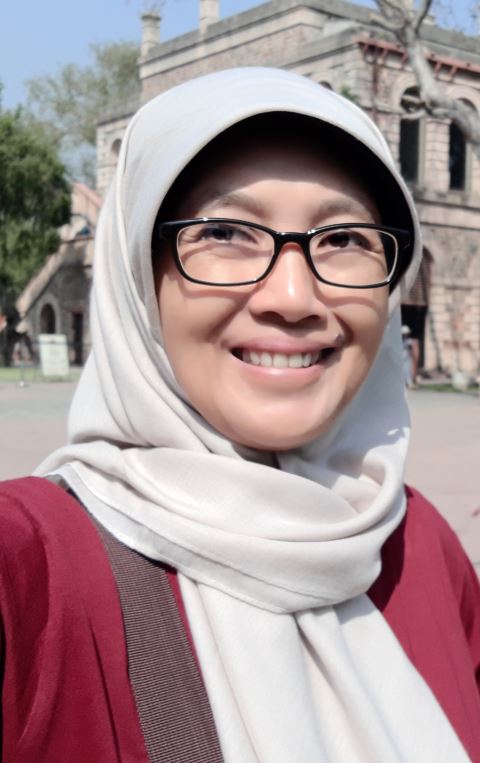
Position: Professor
Contact Information:
- Department of Mathematics, Faculty of Mathematics and Natural Sciences, Universitas Gadjah Mada, Yogyakarta, Indonesia
- ind_wijayanti@ugm.ac.id
- Website : acadstaff.ugm.ac.id/indahewijayanti
Biography
Indah Emilia Wijayanti has been started her career as a lecturer at the Department of Mathematics Universitas Gadjah Mada(UGM) in 1994. Her doctoral program was successfully completed in 2006 at the MathematischesInstitut, Heinrich Heine University of Duesseldorf Germany. She was the coordinator of the Indonesian Algebra Society (2007 – 2011). Moreover, she is also active in the Indonesian Mathematical Society (IndoMS). Currently, she has the mandate as President of IndoMS for the period 2020-2022 and 2022-2024. She is alsothe Editor in Chief of the Journal of the Indonesian Mathematical Society (JIMS) (2019 - present). In the Department of Mathematics UGM, she is leading for developing the Algebra Research Group (2022 - 2025). In 2016 – 2021 she became Secretary of the Mathematics Department. Her commitment to developing algebra research can be seen from several research grantsshe receivedincluding the DAAD for the Re-Invitation Program (2013) in Germany and the Fulbright Senior Research Program (2016) for research visits to the Ohio University Center of Ring Theory and its Applications (OCRA), Athens, USA. Moreover, she also a grantee for several Indonesian research grant schemes. She was confirmed as a professor of mathematics on September 15, 2020 with an inaugural speech entitled Research and the Role of Abstract Algebra in the Development of Science in the Present and Future.
-----------------------------
JOSE ERNIE C. LOPE
President, Mathematical Society of the Philippines
Institute of Mathematics, University of the Philippines Diliman
Diliman, Quezon City, Philippines
Jose Ernie Lope obtained his bachelor’s degree in mathematics (summa cum laude) from the University of the Philippines Diliman, and his master’s and doctoral degrees from Sophia University in Tokyo, Japan. For close to three decades, he has been doing research on the theory of partial differential equations, but has time and again also dabbled in applied and computational mathematics.
He was National Champion of the Philippine Mathematical Olympiad (PMO) and represented the country in the International Mathematics Olympiad (IMO) in 1994. He later returned the favor by serving the local math community as Director of the PMO in 2011-2013 and as Team Leader of the Philippine delegation to the IMO in 2013-2015. He is currently the President of the Mathematical Society and a member of the editorial board of Matimyas Matematika, the society’s official journal.
He has been recognized by the National Academy of Science and Technology for excellence in research and by UP Diliman for excellence in teaching. He was recently conferred the Achievement Award in Mathematical Sciences by the National Research Council of the Philippines. He now heads the UP Diliman Institute of Mathematics, his home unit since his undergraduate years.
-----------------------------
HANG KIM HOO
Vice President, Singapore Mathematical Society
Jurong Junior College, Singapore
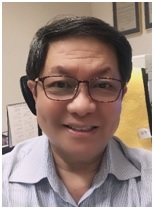
Dr Hang Kim Hoo is currently the Presidentof the Singapore Mathematical Society (SMS). Since joining the SMS in 1980, he has played key roles in the SMS. Among his key contributions with the SMS, he was one the pioneers who set up the Singapore Mathematical Olympiad competitions in 1995. He was also among the pioneers who helped set up the systems and structures to support the development of Mathematical talents in Singapore and helped train the Singapore IMO National teams from 1989 to 1994. His 38-year career in Mathematics and Mathematics Education spans from teaching the first batch of gifted students in Singapore to holding various key appointments in the Singapore Ministry of Education (MOE) where he was instrumental in steering the advancement of math teaching and learning in Singapore and establishing the renowned NUS High School of Mathematics and Science from 2007 to 2015 as its Principal. Besides Mathematics and Mathematics Education, he has spent time in Theoretical Physics where was a Fellow with the Institute of Advanced Studies at the Nanyang Technological University from 2016 to 2019. He retired as a College Principal last year and is currently a Senior Fellow with the National Institute of Education, Nanyang Technological University, and working on the revised Singapore Mathematics Curriculum and STEM Programmes at the MOE.
Dr Hang holds a BSc (Hons), MSc (Statistics) and PhD (Pure Mathematics) degrees from the National University of Singapore, and MEd (Math Education) degree from Nanyang Technological University.
Title of Lecture: The Future of Mathematics and Mathematics Education in Singapore
Abstract: This lecture will briefly share on the following:
- Some of the changes that are taking place at the tertiary level in tandem with challenges and development in the world where Mathematics continues to be relevant;
- Road map and changes within Mathematics Education in Singapore to prepare students for lifelong learning, especially with the access to advanced technology.
- The Eco-system to support the development of Mathematical Talents in Singapore
------------------------------
MASLINA DARUS
SEAMS Past-President
President, Malaysian Mathematical Sciences Society
School of Mathematical Sciences, Universiti Kebangsaan Malaysia
Selangor, Malaysia
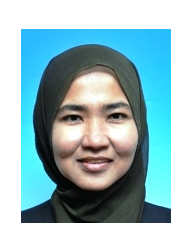
Prof. Dr. Maslina Darus (Universiti Kebangsaan Malaysia, Selangor, Malaysia) - Maslina Darus obtained her first degree in Mathematics from Acadia University, Nova Scotia in 1992. She obtained her Ph.D., from the University of Wales, Swansea, U. K. in 1996. She became a lecturer at Universiti Kebangsaan Malaysia and was promoted as Associate Professor in 2001. She was promoted to Full Professor in September 2006. She was appointed as Head of the Mathematics program from 2004-2009. Then from 2010 until 2013, she was the Chair of the School of Mathematical Sciences and was appointed as Deputy Dean, for Undergraduate of the Faculty of Science and Technology from 2013 to 2018. She is very active in the Malaysian Mathematical Sciences Society (PERSAMA) and served as the Honorary Secretary for about 17 years (1997-2013). Currently, she is the President of the Malaysian Mathematical Sciences Society (PERSAMA). Her interests in geometric function theory mainly focus on certain properties of univalent functions. She has graduated with more than 30 Ph.D. students. The students are from Jordan, Iran, Iraq, Libya, Oman, Saudi Arabia, Pakistan, Nigeria, Indonesia, and Malaysia. More than 40 master’s students have graduated under her tutelage. The results from the research have indeed been published in more than 800 articles in various databases. She has collaborated with many mathematicians throughout the globe. She received the National Young Scientist Award in 2002 from the Ministry of Science Technology, and Environment, the Nishiwaki Prize from Hisayoshi Nishiwaki in 2009, Kyoto Japan, and was inducted as a Fellow of the Academy of Sciences Malaysia in 2018.
-----------------------------
WICHARN LEWKEERATIYUTKUL
Director of CEPMART, Mathematical Association of Thailand
Department of Mathematics, Chulalongkorn University
Bangkok, Thailand
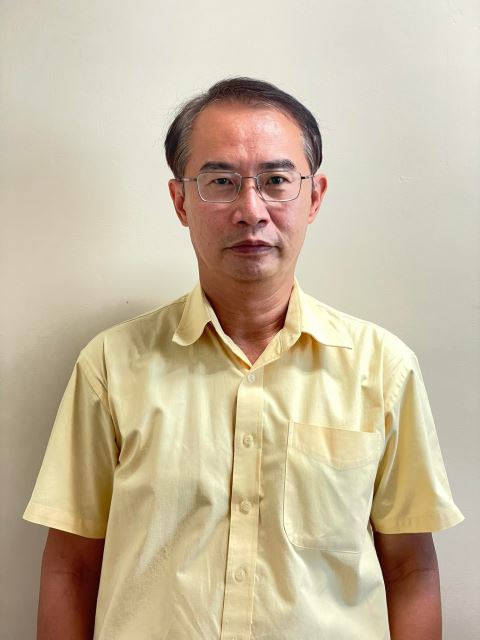
Title:
Development of Mathematical scenes in Thailand
Abstract:
In this 30-minute presentation, I will give a broad perspective of development of mathematical scenes in Thailand. I will present mathematical research groups in Thailand. Moreover, I will try to list mathematical activities hosted by Thailand in the past. If time permits, I will discuss about the roles in developing mathematical education in Thailand.
-----------------------------

